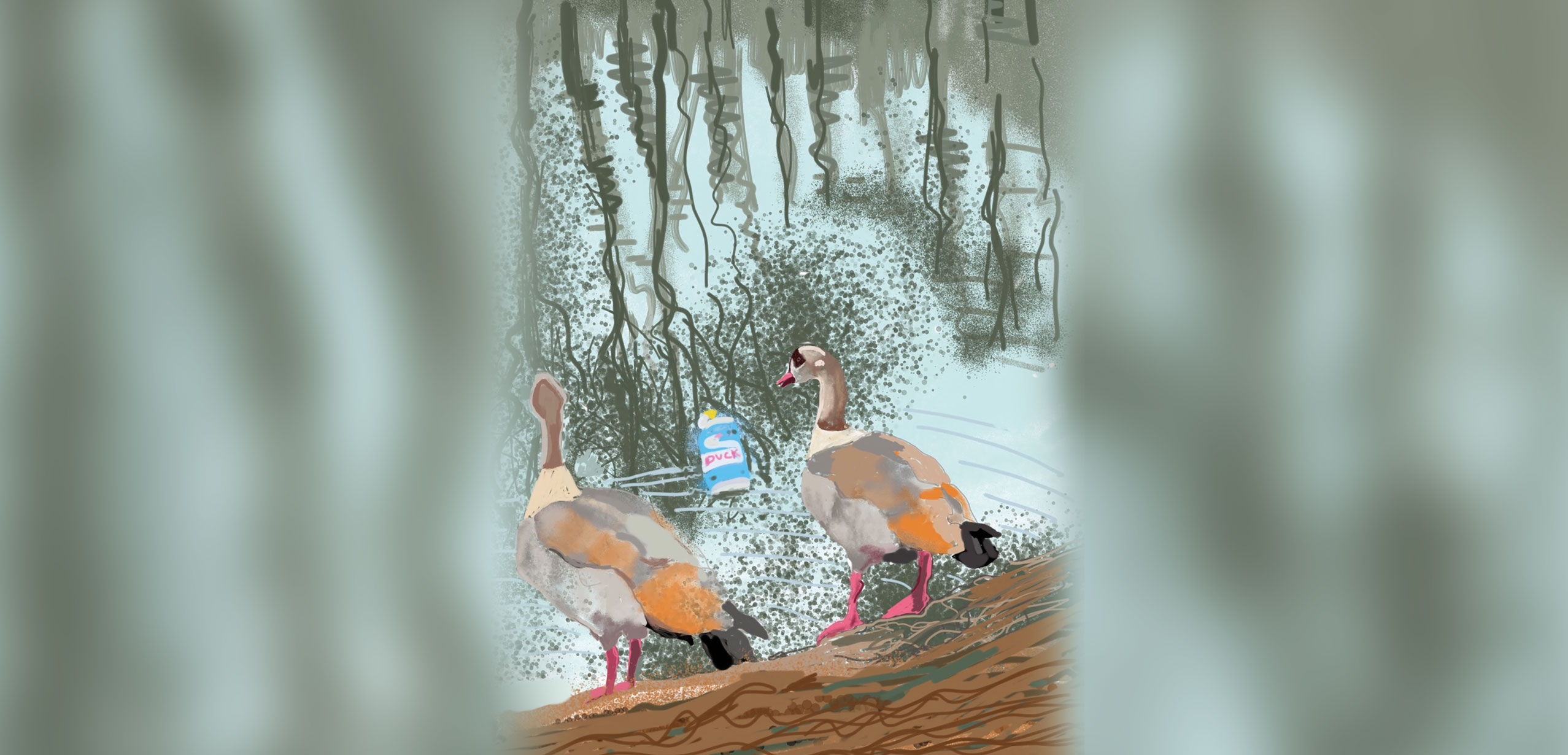No more excuses. If we are to tackle plastic pollution, the plastic industry needs a rigorous shake up, says Wanstead Climate Action member Tina Nieman Da Costa. Artwork of Egyptian geese in Wanstead Park by Kathy Taylor
Plastic has been an important factor in the advancement of our civilisation. This fact is true in all aspects of our lives. Many of the essentials we enjoy would be impossible if not for the inexpensive and durable properties of this magical man-made substance.
That acknowledged, we produce 270 million tonnes a year to feed our addiction, eight million tonnes destined for the oceans as discarded litter. The Great Pacific Garbage Patch (GPGP) or ‘Garbage Island’, located in the Pacific between Hawaii and California, is estimated at 1.6 million square kilometres, three times the size of France.
One of the reasons plastic pollution is so bad is because no one producing it – or using it as a major part of their product – is required to recycle it, and therefore producers do not have to make plastics easier to recycle or be part of the clean-up effort.
Britain is one of the world’s largest producers of plastic, and yet exports 70% of its plastic waste to developing countries with little to no environmental regulations, allowing greedy opportunists to take advantage of lax laws and a voiceless populace for profit.
New rules regarding the export of plastic waste came into effect in January 2021. Agreed by more than 180 nations under the Basel Convention, a system of ‘prior informed consent’ for all exports of difficult-to-recycle or contaminated plastics will be in place. Though this has been welcomed with much optimism, it can hardly be described as slamming the brakes on a runaway industry.
Garbage Island is only one of five sites plastic is clustered in large amounts where ocean currents meet. The effect on marine life is well documented and is of major international concern, as well as micro-plastics entering our food chain and the very air we breathe, the true effects are yet to be determined fully.
Our continued addiction to plastic has now reached detrimental proportions, and like any other negative, habitual practices, an intervention is required.
Several solutions have been discussed, most notably a complete ban on new oil plastic production. In theory, forcing the industry to look for alternatives, like plant-based plastics, which breakdown in composts, or mine and recycle existing plastics from landfills and the aforementioned Garbage Island.
The plastic industry needs a rigorous shake up. There is no consumer-based solution, regardless of how much a plastic bag costs on your weekly shop.
What is required will take leadership, strong government and cooperation from all stakeholders to take control of an issue that will end in a mass petro-chemical poisoning of our air and oceans and a plastic-wrapped planet Earth.
For further reading, try Karen McVeigh’s article in The Guardian (wnstd.com/polluters). And check out the Wanstead Climate Action website if you’re interested in radical environmental action in the countdown to the global environmental gathering at COP26 this November.




